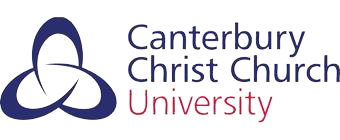As with all our Mechanical Engineering degree courses, our Systems option isn’t just designed to teach you the practical and technical aspects of the subject.It also allows you to get involved in solving problems facing businesses in the real world, using the pioneering ‘Concept, Design, Implementation and Operation’ (CIDO) approach.You will gain key employability skills and be encouraged to take up placements, helping you to go straight into employment upon completion of your studies.On completion of the course you'll be skilled in professional engineering practice and prepared to work as an effective, industry-ready engineer who is on track to become a Chartered Engineer.

Canterbury Christ Church University
Mechanical Engineering (Systems) (MEng)
Entry Requirements
MEng 112-120 UCAS points (including A level or equivalent in maths, physics, applied science or engineering)
Further entry requirements
- 5 GCSEs grade C/4 or above (including maths, English language, science)
- Science can be physics, chemistry, biology or computer science
You will need to maintain 50% or more in each module during the first three years of undergraduate study to remain on/progress onto this course. Please note any module failure at Level 7 will result in being awarded the BEng Mechanical Engineering.
Course Details
You'll begin the course by learning about professional practical engineering and you'll study engineering design and engineering science.
As you progress through the degree, you'll explore mechanical engineering in more depth studying modules such as dynamics of solid materials and mechanics, and systems engineering modelling and analysis methods. You'll also have opportunities to develop the leadership and management skills that are needed for senior roles in engineering.
Our hands-on learning both on campus and on-line will prepare you to enter an engineering career with varied and exciting prospects. You will develop a practical problem-solving approach through active learning laboratories, engineering laboratories and the use of engineering workshops and makerspace. You will undertake small group projects, typically sourced from industry. You'll also develop skills enabling you to:
- work effectively and supportively in diverse and inclusive groups
- communicate effectively in groups and one to one
- apply project management to group-work
- apply principles of commercial management and consideration of wider issues.
Each year you'll undertake a large group project which will be supported by the use of on-line tools and on-line project management approaches akin to industry. These projects, which are typically sourced from industry, will help you build in confidence and develop your learning in engineering business, practice and project management.
In year 1, you will have the opportunity to develop your knowledge and understanding and some application.
As you progress to year 2, you'll apply your knowledge and understanding to conceive, design, build and operate a solution to a problem.
In your third year, you will undertake an individual research and development project that will inform the group project and help you to develop and illustrate the ability to critically analyse the application of your knowledge and understanding to solve an engineering problem.
You'll continue to undertake project work in Year 4 and will advance your engineering expertise.
You will also have the opportunity to undertake a work placement and gain valuable experience working and developing relationships with industry experts.
Year 1
Professional Practical Engineering (with Mechatronics Project)
Mathematics & Computing for Engineers
Introduction to Engineering Design
Introduction to Electro-Mechanical Systems and Practice
Introduction to Material Engineering Characteristics & Manufacture
Placement Module
Year 2
Engineering Product Lifecycle
Computer Aided Engineering and Design
Computer Aided Engineering and Design4
Dynamics of Fluid and Thermal Systems
Control, Instrumentation, and Communication Systems in an Industrial Environment
Year 3
Professional Systems Engineering Project
FEA for Mechanics and Materials
CFD for Thermal and Fluid Dynamic Modelling
Systems Engineering Modelling and Analysis Methods
Systems Design and Engineering Analysis
Year 4
Professional Engineering Project and Management
Energy Systems and Sustainability for Engineers
Advanced Engineering Modelling
Quality Systems and Processes
Are you ready to start building your future?
Contact our admission counseller and get a free consultation.













